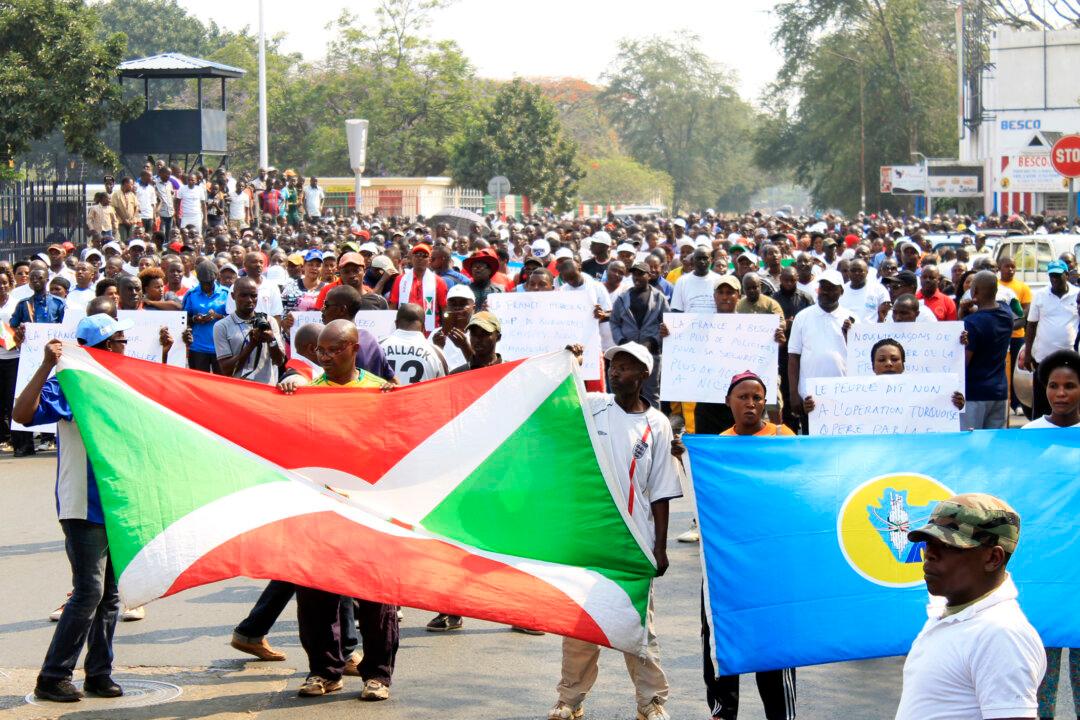BUJUMBURA, Burundi—More than 1,000 people in Burundi participated in a government-backed demonstration in the capital, Bujumbura, Saturday to protest France’s proposal passed by U.N. Security Council to deploy U.N. police to the country.
Led by the mayor of Bujumbura Freddy Mbonimpa, the protesters marched peacefully through the streets to the French Embassy.
“We do not hate France but we want to show how we are angry with that resolution proposed by France to send police experts,” Mbonimpa said.
Gerrit Van Rossum, France’s ambassador to Burundi, said it was a misunderstanding. Burundi is going through a crisis and the resolution was not to send troops but police experts, he said.
Burundi has been wracked by turmoil since April 2015 when President Pierre Nkurunziza launched his campaign for a third term in office that many opposed as unconstitutional. Nkurunziza was re-elected in July 2015.
More than 400 people have died and 260,000 people have fled Burundi in the unrest. There are frequent killings of both government and opposition supporters and a rebel group has sprung up, vowing to oust Nkurunziza. Rights groups accuse the government of violence against opposition members and protesters.
The Security Council agreed Friday to send a contingent of 228 United Nations police to Burundi to control the continuing violence and to protect human rights in the East African nation. Burundi has said it would accept no more than 50 U.N. police and diplomats are negotiating to get the government to accept the arrival of a larger force.





